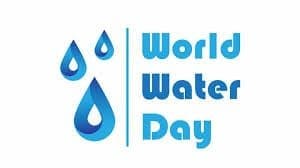“As water conservation becomes a grave environmental concern in the industry, the textile industry needs to put in place practices to curb rampant usage. The UN estimates that a single pair of jeans requires a kilogram of cotton. And because cotton tends to be grown in dry environments, producing this kilo requires about 7,500–10,000 litres of water. That’s about 10 years’ worth of drinking water for one person. According to National Resources Defense Council (NRDC), it accounts for one-fifth of the world’s industrial water pollution. Much of this water is used in the cleaning , coloration and finishing of fabrics. Yarn and fabric dyeing are among the highest water consuming processes . Also, Synthetic materials that are frequently used for sportswear, such as polyester, are naturally hydrophobic, making them more difficult to dye. As per World Resources Institute, 5.9 trillion litres of water are used each year for fabric dyeing alone. Around 20% of industrial water pollution in the world comes from treatment and dyeing of textiles, and about 8,000 synthetic chemicals are used to turn raw materials into textile. For Lenzing, a breakthrough for water savings comes in the creation of TENCEL™ Modal Black, a spun-dyed fiber that introduces color at the pre-extrusion level. The black color pigment is incorporated into the TENCEL™ Modal fibers at the dope level. This coloring of the fiber, instead of dyeing it on the surface, not only creates greater penetration and longevity of the color but creates a more sustainable product. This fiber consumes 50% percent less water and energy. Lenzing fibers are known for their significantly less impact on environment including water consumption”, Mr. Avinash Mane, Commercial Head, South Asia, Lenzing Group.
Industry And Cluster | News & Insights
Quote on World Water Day

Published: March 19, 2020
Author: TEXTILE VALUE CHAIN
Related Posts
